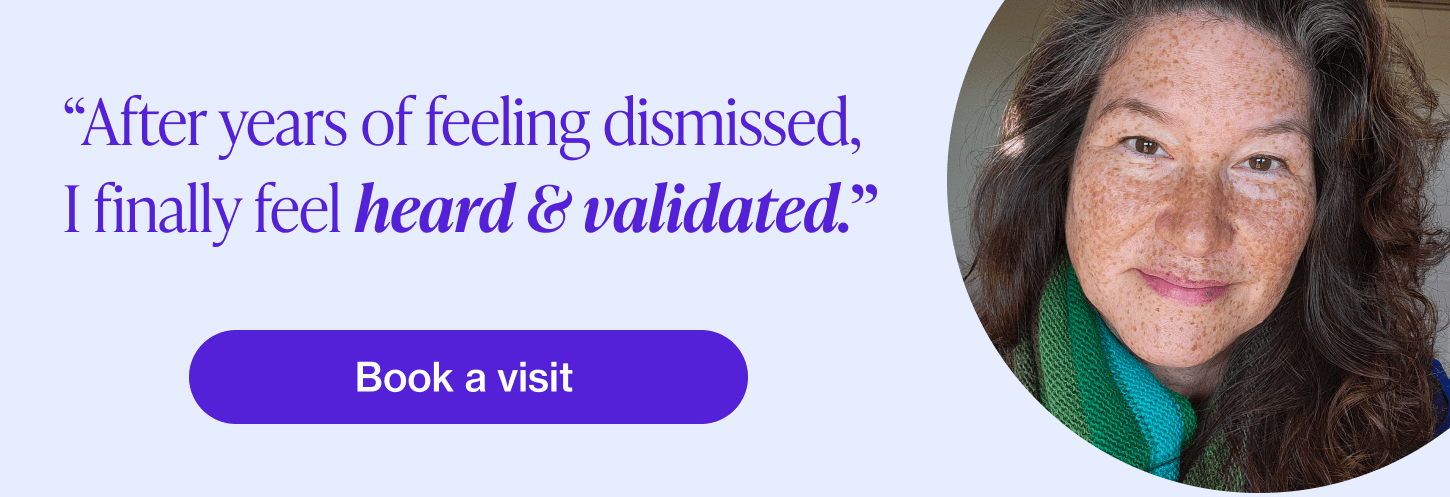
Published on Nov 18, 2022
Last modified on Nov 18, 2024
The Science Of Gratitude: Change Your Attitude, Change Your Life
3 min read

After a year like this one it may feel … exhausting … to celebrate Thanksgiving. And let us just say that negative emotions are perfectly normal during a month like one. But, before we let those feelings get the best of us — and our nervous systems — we at Elektra Health are taking a moment to refocus on the emotional core of the upcoming holiday: gratitude.
The science of gratitude and better health
Practicing gratitude is scientifically proven to rewire our brains and enhance our sense of wellbeing. In fact, there is an entire psychology field known as positive psychology that focuses on the practice of behaviors, such as the expression of gratitude, that help individuals to find greater life satisfaction and feelings of happiness.
Not only is it free, but gratitude has far-reaching health benefits no pharmaceutical company can bottle. To name a few benefits of expressing gratitude:
- Reduces depressive and anxiety symptoms. Researchers have found a significant association between high levels of gratitude and low levels of depression. Additionally, one study found a correlation between participants’ ratings of gratitude and brain activity in the prefrontal cortex. This part in the brain is responsible for managing negative emotions like shame and guilt, and gratitude is thought to support this regulation. Gratitude also activates the hypothalamus — a small part of the brain located at the base that manages sleep, mood, sex drive, hunger — and is associated with dopamine, a neurotransmitter also known as the “pleasure hormone.”
- Improves sleep quality and helps us fall asleep faster. Studies have shown that people who practice gratitude in their daily lives actually sleep better.
- Supports our heart health. That’s right, gratitude helps with our physical health, too. Gratitude is associated with lower blood pressure — a leading risk factor for heart disease and stroke.
So please, take 10 minutes to invest in your mental health this week.
How to incorporate gratitude in your daily routine
The practice of gratitude can be as simple as pausing right now to think of a few things you’re thankful for. But the more regularly you practice gratitude exercises in your daily life, the better you’ll feel. Just remember, it takes time for this practice to yield benefits, so give it at least a couple weeks. But here’s what’s really cool: the benefits of a gratitude practice increase over time if you keep it up. Here are a few ideas:
- Write a letter of gratitude (or an email). The next time you check your email, think of someone who has done something for you recently. Send them a quick email or text (maybe a post-it note, if they’re in your home) to let them know you’re grateful.
- Keep a gratitude journal. Either first thing in the morning or last thing in the day, think of one thing you’re grateful for that day. Make it a daily practice to share it with a partner or a friend.
- Pay it forward. A 2022 study by the University of Ohio assigned participants with elevated depression or anxiety symptoms to engage in a random act of kindness. Not only did the study find that performing acts of kindness promoted connection and positive social relationships, but that the action resulted in greater well-being benefits than long-established therapeutic techniques.
Demonstrate your gratitude for the blessings in your life by giving to others. Give $10 to Feeding America and provide up to 100 meals to families in need this holiday season.
Loving this gratitude thing? Want to learn and practice more? Continue the work with:
- This white paper on gratitude by the Greater Good Science Center at UC Berkeley is a treasure trove of information exploring everything from what it is, how we come to feel it, how it benefits us as individuals and as a society, and “gratitude interventions” — more ideas for practicing with intention.
- Robert Emmons book, Thanks: How the New Science of Gratitude Can Make You Happier, is written for a general audience like us. In it, he explores the science behind the benefits of gratitude and association with positive emotions, and offers more ideas for practicing. You can read more of his thoughts on his website.
- In his TED Talk, Want to be happy? Be grateful, monk and interfaith scholar Brother David Steindl-Rast calls for a revolution of gratitude. Sign us up! His website, gratefulness.org, delves into the more spiritual aspects of gratitude.



